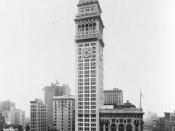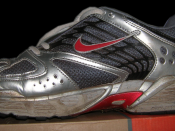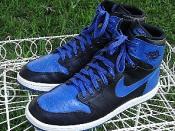Nike is the largest athletic shoe and apparel company in the world with a market share of nearly forty percent. The company incorporated in 1968, and has been headed by Phillip Knight, a co-founder and CEO, since its inception. Nike owns and operates over 700 factories worldwide and its products are distributed in 140 different countries.
Through extensive research amongst the consultants here at Prime Seven, we feel that our calculations prove that Nike?s current share price is overvalued. In addition to this, we have also found that Nike has faced a decline in growth in revenue and net income, a decline in market share, a series of questionable labor practices, and a slumping United States Economy. For these reasons, we feel that the NorthPoint should not invest in Nike for its Large-Cap Fund.
Nike?s Decline Despite past years of great success, Nike has recently fallen into a slump.
With the rise in competition from shoemaker Adidas and resurgence from Reebok, Nike?s market share in the athletic shoe and apparel industry has dropped off dramatically in 2000; down nearly ten percent. Nike also experienced an enormous drop in its revenue growth, which may signal to shareholders that it has already plateaued as a corporation. Nike peaked in 1997 with a forty percent increase in revenue, but has only topped out at a five and a half percent increase ever since. The decline in revenue can directly be attributed to their decrease in net income, which has only grown at just below two percent for the first six months of 2001.
On 02/26/2001, after the close of the market, Nike issued a press release revising its third quarter and fiscal 2000 earnings because of problems arising from the impact of implementing new demand and supply planning systems developed by...


